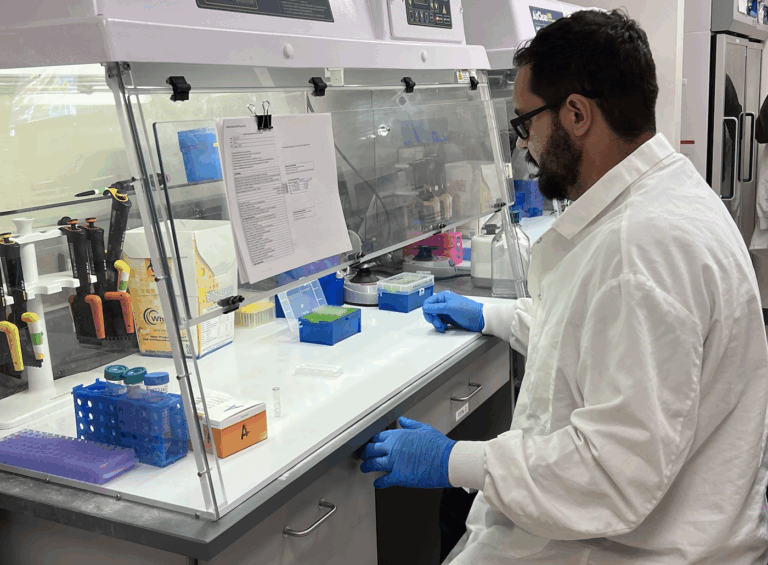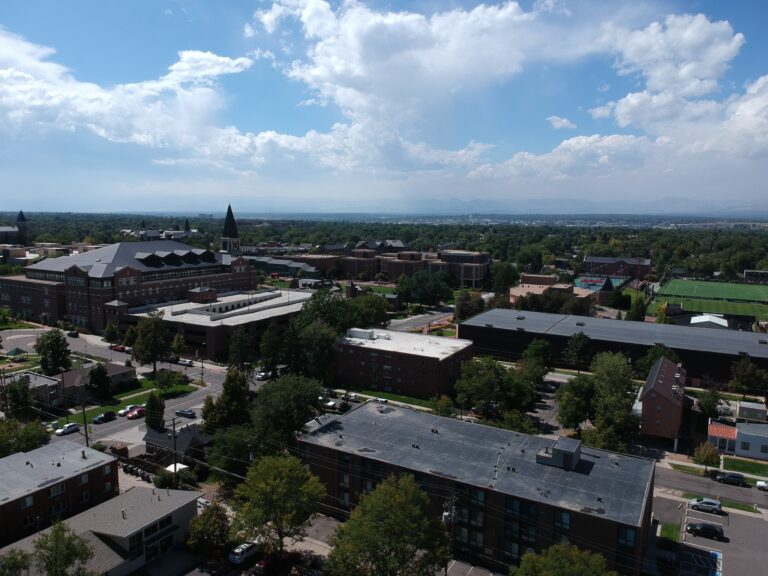BOULDER — Even if you understand the basics of quantum theory — a big if — wrapping your mind around the near-term utility of quantum technologies can be a stumbling block.
To that end, Boulder Startup Week hosted a panel discussion Tuesday dubbed “Quantum Convergence: The intersection of quantum technology and our daily lives” aimed at making this challenging but exciting field — a field in which the Boulder Valley plays an outsized role — a bit more accessible.
“Quantum computing has been 10 years away for 30 years,” Icarus Quantum CEO Poolad Imany said during the BSW panel moderated by CBRE vice president Brian McClenahan. “ … But in the next five years, we’ll get to the point where quantum computers will solve a problem that no other supercomputer can solve.”
Quantum theory attempts to explain the behavior of matter at atomic and subatomic levels. Because quantum computers take advantage of special properties of quantum systems such as superposition, their computing power and speed are exponentially greater than a traditional computer.
The U.S. Department of Commerce’s Tech Hub program granted Elevate Quantum, a nonprofit consortium of about 70 stakeholders who represent industry, academia, capital and laboratories in Colorado and New Mexico, a Phase 2 Tech Hub designation last year that unlocked $127 million in state and federal funds, which are expected to generate several billion more dollars of private investment in the region’s quantum industry.
The Boulder Valley — with the University of Colorado physics department, the National Institute of Standards and Technology and JILA (formerly known as the Joint Institute for Laboratory Astrophysics) — has become, over the past three decades or so, the epicenter of quantum research.
Atomic clocks are an example of a fairly mature and relatively easily understood application of quantum technology.
For centuries, metronomes have done a decent job of keeping time, Mesa Quantum physicist and chief of staff Austin Granmoe said, but “not every metronome is perfect.”
Tiny imperfections in devices’ abilities to keep time become potentially disastrous when those devices require precise synchronization for positioning applications used in “space, deep-sea or underground applications,” he said.
Furthermore, quantum technology can be used in cybersecurity applications — autonomous vehicle positioning, as an example — to “check if someone is trying to spoof your location,” he said.
Robert Fasano, a portfolio lead with quantum technology firm Infleqtion, said that while “quantum computers are not just magical versions of traditional computers,” their incredible computational power and ability to accurately measure tiny changes in mass or light can be harnessed for a host of monitoring applications such as the measurement of polar ice cap melt.
Dan Powers, executive director of CO-LABS, a nonprofit consortium of federally funded labs in Colorado, noted that “curious and creative” researchers have developed quantum technologies that use light and lasers to distinguish between different types of molecules.
Boulder startup LongPath Technologies Inc., for example, is building equipment that can be “mounted to a pickup or carried in a backpack” that can be used to monitor methane emissions across oil and gas production basins.
“Quantum sensing is here now and is making some quick impacts,” Granmoe said, but challenges to further technological exploration and commercialization exist.
“Workforce and education needs (are) going to be a huge issue” as quantum companies’ staffing requirements increase, he said, while supply-chain bottlenecks — in part a result of there being so few quantum computer components suppliers in the market — represent another persistent complication.
Author
-

A Maryland native, Lucas has worked at news agencies from Wyoming to South Carolina before putting roots down in Colorado.
View all posts






